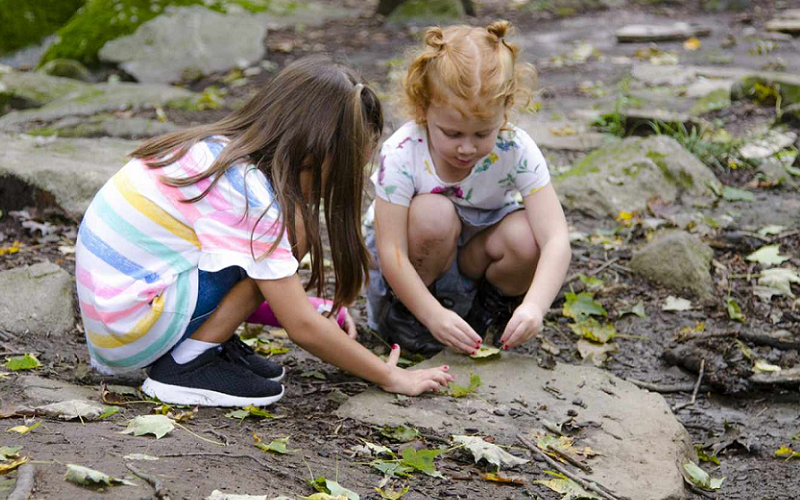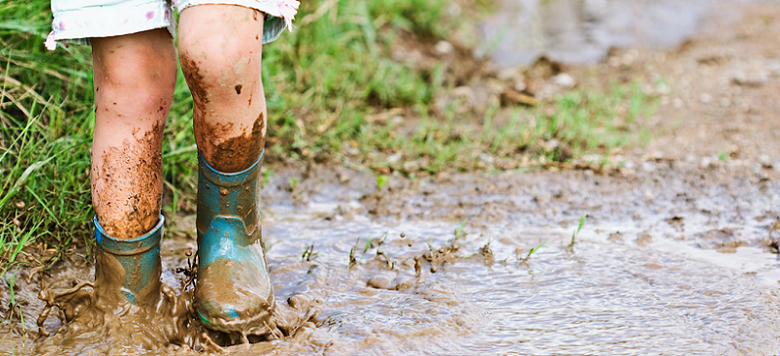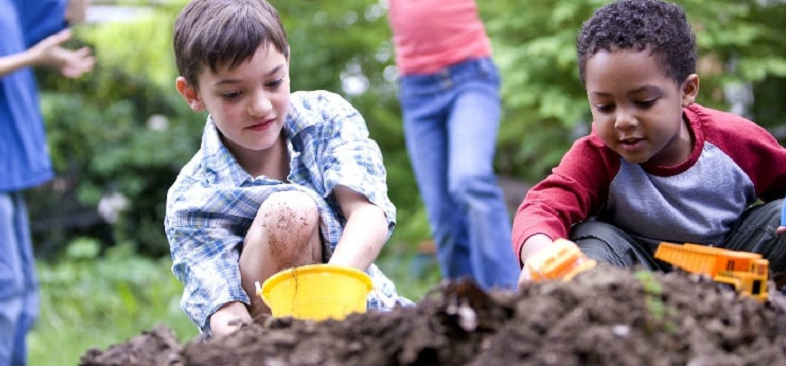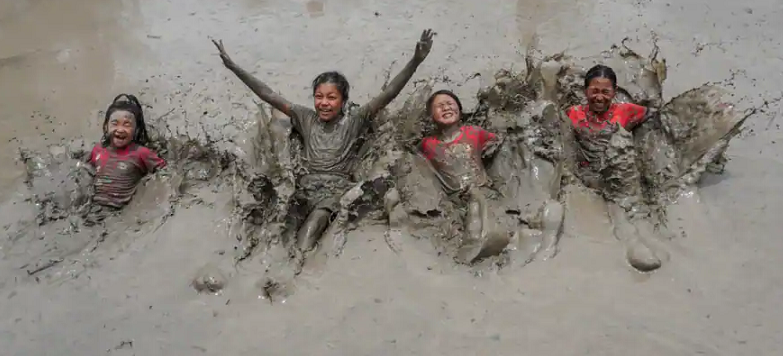
Playing in dirt is a quintessential childhood experience that many of us have fond memories of. However, in recent years, parents have become increasingly wary of allowing their children to play in dirt due to concerns about safety and hygiene. But what if we told you that playing in dirt is actually good for your children’s health and development? Here we explore the benefits of letting your kids play with dirt and provide tips on how to do it safely. So, put away those hand sanitizers and join us as we delve into the world of dirt play!
Overview of Why Dirt Is Safe for Kids
Dirt can be a fun and healthy playtime activity for kids. In fact, it can offer a range of benefits for their physical and mental development. Contrary to popular belief, dirt is actually safe for children to play with, provided that basic safety precautions are taken.
Exposure to microbes in dirt and soil can help to boost the immune system, which can reduce the risk of allergies and asthma. Dirt play can also help to develop sensory skills, reduce stress and anxiety, promote creativity and imagination, and develop fine motor skills. Playing in dirt can be a great way to learn about science and the natural world.
To ensure that dirt play remains safe and healthy, take basic safety precautions such as washing hands before and after playtime, choosing a safe play area, avoiding areas with pet feces, protecting against tick bites, avoiding chemical exposure, using gloves when gardening, and monitoring playtime. By keeping these considerations in mind, parents can encourage their children to enjoy the benefits of dirt play while minimizing the risks of exposure to harmful bacteria and other hazards.

Benefits of Kids Playing With Dirt
Playing with dirt can offer a wide range of benefits for children, both in terms of their physical and mental development. One of the most notable benefits is that exposure to dirt and soil can help to boost the immune system.
When children come into contact with different types of microbes, their bodies produce antibodies that help to fight off future infections. In fact, some research suggests that children who are exposed to a variety of microbes in their early years may have a lower risk of developing allergies and asthma later in life.
Playing in dirt can also help to develop children’s sensory skills. Digging, scooping, and manipulating dirt and sand can engage all of the senses, allowing children to explore different textures, smells, and colors. This kind of sensory experience is important for the development of the brain and can help to build important neural connections.
Spending time in nature, including playing with dirt, can have a calming effect on the mind and body, reducing stress and anxiety. This can be particularly beneficial for children who may be dealing with stressors at home or school. Dirt play can be an enjoyable and relaxing activity that doesn’t require any special skills or equipment, making it a great way for children to unwind and decompress.

Playing with dirt can also help to promote creativity and imagination. By allowing children to create their own worlds and stories, dirt play can help to develop their imagination and creativity. This kind of unstructured play is essential for children’s emotional and social development, allowing them to explore their own interests and ideas.
Playing with dirt can help to develop fine motor skills and hand-eye coordination. By digging, scooping, and manipulating dirt and sand, children can improve their dexterity and coordination, which can be particularly beneficial for younger children who are still developing these skills.
Playing with dirt can be a great way to learn about science and the natural world. Children can explore the life cycle of plants and animals, learn about the different types of soil, and understand the role that dirt plays in our environment. By encouraging children to explore and play in the natural world, parents can help them to develop a lifelong love of nature and a sense of wonder about the world around them.
Safety Considerations for Kids Playing With Dirt
While playing with dirt can offer many benefits for children, take some basic safety precautions to ensure that their playtime remains safe and healthy. Here are some safety considerations to keep in mind when your kids are playing with dirt:
- Clean hands before and after playtime: Children should be encouraged to wash their hands thoroughly before and after playing in dirt. This helps to reduce the risk of exposure to harmful bacteria and other pathogens that may be present in the soil.
- Choose a safe play area: Look for a clean and safe area for your child to play in. Avoid areas with standing water, which can be a breeding ground for bacteria. Also, make sure the area is free of hazards such as sharp rocks or broken glass. If possible, choose a designated play area in your yard or a nearby park.
- Avoid areas with pet feces: Dirt and soil can sometimes be contaminated with pet feces, which can harbor harmful bacteria such as E. coli. To reduce the risk of exposure to these pathogens, avoid areas where pets have been known to defecate.
- Protect against tick bites: Tick bites can lead to serious illnesses such as Lyme disease. When playing in grassy or wooded areas, children should be dressed in long pants and shirts, and insect repellent should be used.
- Avoid chemical exposure: Avoid playing in areas that may have been contaminated with chemicals or pesticides, as these can be harmful to children’s health. Also, avoid playing in areas near busy roads, where exhaust fumes may be present.
- Use gloves when gardening: If your child is helping with gardening tasks, such as planting or weeding, they should wear gloves to protect their hands from potential cuts, scratches, or exposure to harmful substances.
- Monitor playtime: While playing with dirt can be a fun and engaging activity, make sure that your child is not spending too much time in the sun or becoming dehydrated. Make sure they are taking breaks and drinking plenty of water.

How to Encourage Kids to Play With Dirt
Encouraging kids to play with dirt can be a great way to promote their physical and mental development. To get your child excited about dirt play, you can start by creating a designated play space, such as a mud kitchen or a small garden bed. Providing the right tools, such as gardening tools and natural materials, can make the experience even more engaging.
Encourage your child to get creative with their dirt play, such as by creating mud sculptures or having a treasure hunt in the dirt. Letting your child get messy and embracing unstructured play can also be enjoyable for them. Parents can join in the fun by playing with their child in the dirt, which can be a great bonding experience. Encouraging unstructured play allows your child to explore and discover on their own, which can help them develop a lifelong love of nature.
